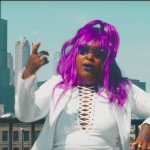Suicide Squad has grown to incur a lot of hate from critics and overzealous comic fans alike. It drew constant comparisons to Deadpool, along with other films in the DCEU. As a result, it became plagued with a stigma around it, and even though most people were eager to see it, it was considered to be a painstaking two hours to sit through. The truth is, this is not entirely accurate.
Almost a year after its release and with the wildly popular Wonder Woman enjoying widespread success, I thought I’d revisit Suicide Squad and see how it held up after all the hype has died down. The answer is ‘surprisingly well,’ even though it’s not without fault. Suicide Squad is a grower, and during my second or third watch through, I was still noticing little hidden nods to DC lore that I missed over previously.
The film has a two hour runtime (shorter than Wonder Woman,) and at times it feels as though you’ve been watching it for two hours. Much of the film takes place at night, so there’s very little visual excitement to keep viewer interest. The film’s palette is dark and brooding, which seems appropriate given the basis of the film. Nonetheless, the darkness becomes dragging, a fact made worse because there’s very little heart in the film.
When it comes to the movie’s villain, Enchantress spends much of the movie determined to get her heart back. Suicide Squad spends much of its runtime trying to find its heart in the first place. To be fair, these characters are villains and antiheroes, but it’s the alleged ‘good guys’ that are the true forces of evil in this movie. You’d expect Deadshot (Will Smith) and Harley Quinn (Margot Robbie) to be sly and cunning, so some allowances are made for them, but other characters aren’t so easily afforded such allowances.
Suicide Squad blurs the line of hero and villain so well that at times it just feels like everyone in the film is a villain. Amanda Waller (Viola Davis) is undoubtedly the most vicious and cunning of the characters, and interestingly enough The Joker (Jared Leto) is the only one that seems to be operating with pure intentions. Let’s be real though, this is The Joker, so of course he is murdering and pillaging his way to get what he wants, but his driving factor is to save Harley Quinn, which is somewhat noble. What’s Waller’s intentions? At the beginning of the film it would appear that she wants to save the world from a metahuman invasion, but when push comes to shove, it’s apparent she cares only about saving her ass and furthering her career.
This whole jumble of ‘who is truly bad and who is good’ is just poorly executed and lacks any semblance of humor or heart to the situation. It would’ve been all too easy to inject some internal struggle among the squad to come to terms with their newfound roles as heroes, or even add some humor to the irony of the various situations they find themselves in, but I digress. Suicide Squad is intent on taking itself seriously, but it finds some redemption in the actors who throw that philosophy to the wayside.
With that in mind, it’s no wonder that Margot Robbie was the breakout star of Suicide Squad thanks to her irreverent and boisterous Harley Quinn. There’s very little comic relief to lighten the load of the film, but when it does come, it’s usually thanks to Harley. If the upcoming Gotham City Sirens features actors playing Catwoman and Poison Ivy that bring life to their roles like Robbie does for Harley, that film will likely give Wonder Woman a run for its money in the fun and feisty department.
Will Smith plays to his strengths as Deadshot, and its a role you’d expect to see Smith playing. At times, Deadshot comes across as angsty and overbearing. He’s not the hitman of his former days, and his time in Belle Reve Penitentiary has given him plenty of time to think about what he’s lost (mainly time spent with his daughter.) Deadshot is great for action scenes, as is Diablo (Jay Hernandez.) Both characters have a haunted past centered around losing their family, and neither backstory is explored in-depth enough to really garner any type of sympathy from the viewer. Their tales may be tragic, but they’re thrown on screen as an aside designed for pity rather than to actually flesh out the main characters.
Jared Leto’s Joker is an interesting departure from previous silver screen depictions of the infamous villain. He’s sleek and modernized, tattooed and gold-chained out. Many of the film’s deleted scenes feature the Joker and Harley, and it’s hard to imagine why they’d be cut when arguably the movie’s best chemistry comes from Robbie and Leto. If smart, The Joker & Harley’s relationship will be an integral part of Gotham City Sirens. The part it played in Suicide Squad left a lot to be desired, with Harley’s backstory feeling just as superfluous as Deadshot and Diablo’s. The inclusion of The Joker did drive the story forward with his attempts to rescue Harley, but all in all he was an unnecessary part of the film. When it comes to Leto’s Joker, Director David Ayer could’ve taken a more all-or-nothing approach that would likely have been to better effect. Either make The Joker a key part to the film and have him work more intimately with the Squad, or reduce him to flashbacks and minor cutaways like Ben Affleck’s Batman (who, interestingly enough, is uncredited.)
Suicide Squad may not be the best offering the DCEU has produced, but it’s far from unwatchable. The main issue with the film is its determination to take itself so seriously when it’s a tale of villains turned into heroes. A few more helpings of humor would’ve knocked this out of the park, but as is, Suicide Squad is a film worth watching only for its characters fans have come to love, rather than any originality or heart.



